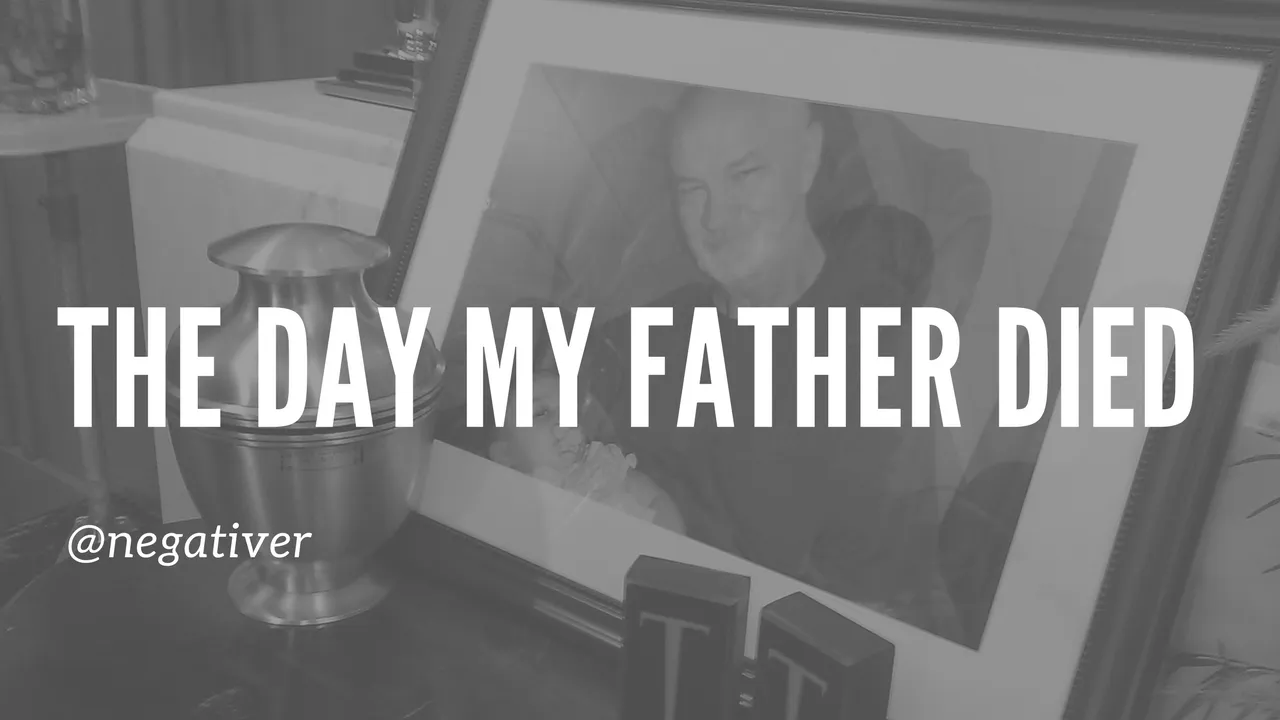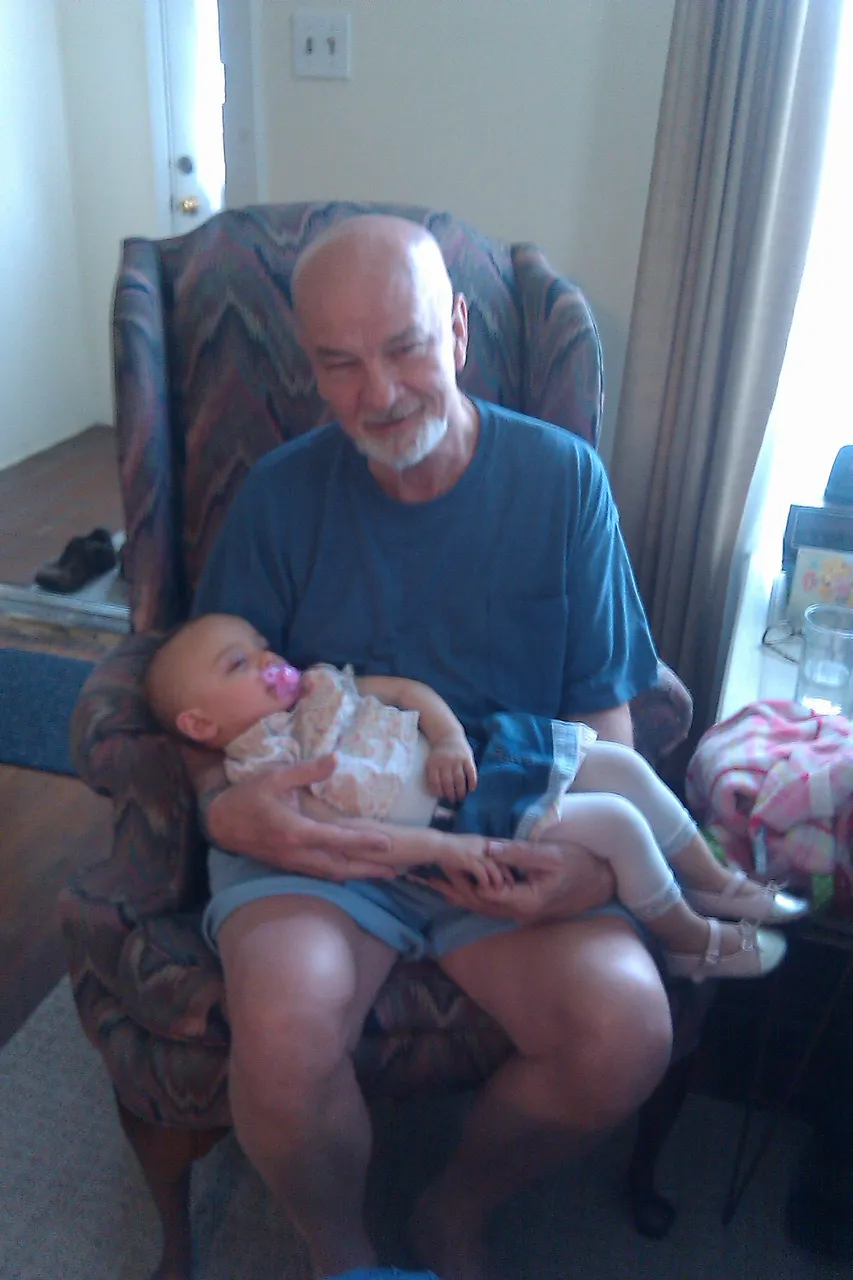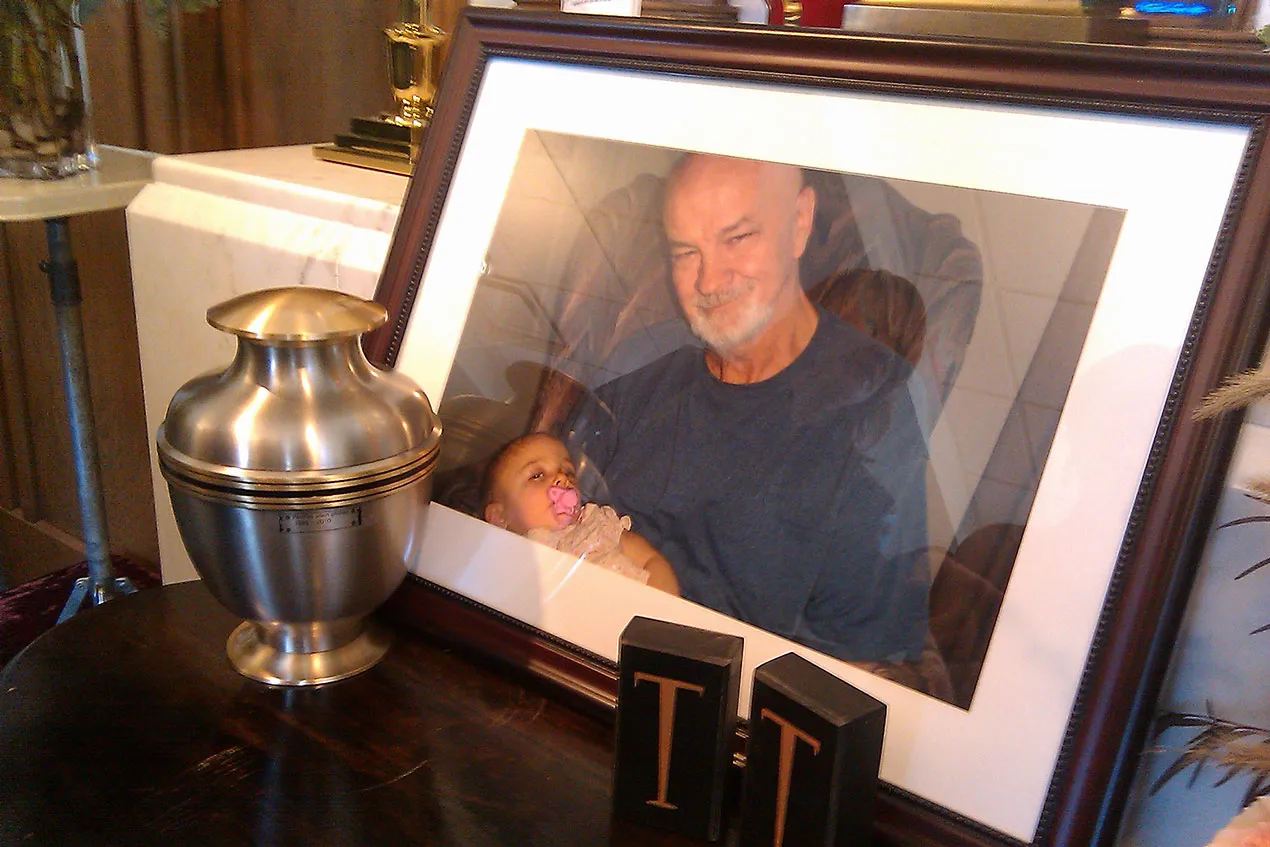
"Cancer's a bitch," people say.
Some of them just repeat the phrase (or similar words) like it's a mantra to keep evil away, that if they acknowledge it often enough then their body is somehow more resistant to its silent call. Don't let the bedbugs bite. Knock on wood. Paint your doorposts with goat blood to keep the angel of death away. Because what else can you really do?
Others say the same words, but I can hear a different weight in them. Thick clumps of memory stirred up from the bottom of a clear lake by a stone dropped. It takes some time for those waters to settle again, the ripples to fade. They know.
I am the second of five of his children, and as a group our family was close. We endured a lot of things together. A lot of trying times. Some of those difficulties were self-inflicted, or so the wisdom of hindsight shows me. A lot of well-intentioned decisions gone bad, others leading to unexpected destinations.
But it was a journey as a family.
Mixed into that journey was a lot of love, both from my mother and father. I'm getting older, but I still remember that. Little snapshots of memories that serve as evidence of what surely happened, what my childhood must have been like. Postcards from my past, written in my own handwriting, but I only barely remember sending them.
I played basketball with my dad. Shooting hoops, playing HORSE, a little one-on-one. He had some decent moves for an older guy. He had a running hook shot across the lane that I could never emulate.
We played football too. Just tossing the ball around, nothing serious. It'd usually just be me and him, although occasionally one of my other brothers would join in. My dad would draw up plays on top of the football in his hand, designating for me to zig this way then zag the other, and he'd toss me the ball. Small hands and a big football didn't always end well, but I enjoyed it.
I helped him fix the muffler on our family car, once. A muffler bandage wrapped around the rusty sheet metal, goopy glop and rust dust falling into my face. I was plenty small enough at the time to fit under that 1970s whale, whatever bland piece of metal we were driving around at that point. Probably the Ford Torino, a banana-colored station wagon with the rear-facing bench seat so you could sit in the way back and face the cars behind you. Making faces or staring down the other drivers with my siblings was more entertaining than wherever we were going.
We'd watch TV together too, and I learned something about baseball (Milwaukee Brewers) and football (Go Packers!) from him. "How many football games do they play each year? Like, a hundred?" I had asked once, naive to the extreme. "No, no, their bodies wouldn't be able to hold up to that. 16 games is all they play." It felt like a lot more than that, since it seemed like we watched a lot of football, but I certainly didn't mind.
We All Make Mistakes
My dad was a strong man, both physically and mentally. He had a powerful personality, but he was usually restrained. He was idealistic, intelligent. Far from perfect. He made mistakes.
One of them was divorcing my mother after some 25 years of wedded drama, love, bliss, arguments (no, we're having a discussion!) aboard an emotional rollercoaster that probably resembled today's cryptocurrency charts. At least that's how my current brain sees it. Childhood brain saw it differently, and my mother and father having long debates about religion and money and my father's investment schemes seemed normal to me then. They seemed like they loved each other, and even if tempers flared and voices rose, there was nothing inexcusable that happened.
According to my childhood eyes anyway. I don't think I want my mother to tell me differently if there's more to the story.
My father eventually moved down to Iowa to be with someone else. There was a long period of time where nobody knew where he was. He had long since fallen out of contact, and out of our minds. I'd think about him briefly, in passing, but I was an adult, as was he, and we all have our daily struggles. All too easy to forget.
The Call
I got a call one day from the lady he was with. I had never talked to her, never met her, and certainly didn't recognize her voice.
"This is Reta, your dad's wife." It took a moment for my mind to reassemble the words into something that made more sense, but I wasn't entirely successful.
"Hello," I said. Or something like it.
"Your dad isn't doing too well. He has brain cancer. You may want to come down and visit as soon as you can. We're not really sure how long he has."
I had felt some degree of surprise at the news, but I was more surprised (afterwards) at how I didn't really feel any sadness. Shouldn't I be sad? I think I was more peeved at the disruption of my schedule and the effort I'd have to spend traveling.
We set up a visit to drive down with a couple of my siblings, a somewhat long drive from Wisconsin to Iowa in high summer.
With some trepidation, we saw our father for the first time in many years at their small home in an older suburb of Fairfield, Iowa.

My dad was much as I remembered him. Bald, easy smile, white hair and beard, soft spoken. My sister had brought her almost-newborn daughter along, and this was the first time he had held her. It was also the last.
There was a lot of talking for the next couple hours, and in our comparative youth myself and my energetic siblings ended up tiring our father out. The effects of his cancer weren't physically evident, but mentally he was just not able to keep up with our talk.
He went outside for some peace and silence. I and my younger brother joined him later, and my brother prayed for our father in the warmth of the late afternoon sun. I am not a religious man, but I prayed too.
Our group left shortly thereafter, somewhat somber on the long drive back.
It was a couple months later that Reta called again, informing me that my father was not doing so well. She was trying everything she could think of within her limited means, but brain cancer is a tough thing to fight. She was staying strong, but the flutter in her voice told me things weren't well.
"You may want to come down and visit again. I'm sure he'd love to see you."
That's when it became real
After a couple weeks, I went down to visit, myself and my wife and my younger brother.
My father was a husk of what he had been just a month or two before.
He was as skinny as a rail, laying on a hospital bed in the middle of the living room. He talked to himself, using nonsense words and syllables, eyes closed, huddled like he was a sleeping child.
We roused him and helped him to a chair at the dinner table where his wife fed him peeled frozen grapes and other things he could swallow. We ate hot dogs.
Then he had to go to the bathroom. It was a sobering, perception-shattering experience to have to help your father to the toilet, pull down his pants, and do the things for him that he can't do himself. Reta had been doing this for months now, and I respected her for that. I wondered if I'd be as equally capable with my own wife, or she with me. Or as patient.
Seeing him like that, that's when it all became real.
We put my father back to bed in the living room, and he huddled up, eyes closed, murmuring pleas for us to be quiet, shhhh, even as we whispered around him.
Reta invited each of us, individually and in privacy while the others left the room, to lie in the bed with him and hold him as a father might with a child. He had regressed to something nearing childhood, and we were the adults now. She suggested we should talk to him, quietly, tell him about ourselves and our lives and what we were doing and planning to do.
She was sure he could hear and understand, that some corner of his brain was trapped in complete awareness, fully functioning, desperate for us. I wanted to believe it too, even thought the thought was frightening. So I told him about what projects I was working on, and my house, and my company, and how much I loved him and how I thought he had been a great father, despite the bumps in the road.
And then we left, leaving him to whatever fate the gods had in store for him.
A couple of weeks later, Reta called and said my father had died. Peacefully, in his sleep.
I felt nothing except relief. I had spent my emotion already, had already resolved myself for what I knew was coming.
He died October 21, 2010.

The last time I saw him was when I went to his funeral. A tiny affair in some antechamber of a church I had never been to, his ashes in a jar next to his picture, with people on either side of me I didn't recognize.
"Cancer's a bitch," people say. I didn't really know it before then, but I know it now.
Extra Thoughts
I didn't sit down to actually write this particular thing when I sat down to write.
My wife went in for an MRI last week to try and track down the reasons for some stubborn side-effects of her car accident last year. Fleetingly (I did not let my imagination dwell on it for long) I wondered what would happen if they discovered something bad in her brain. Fortunately, her results came back yesterday with things consistent with concussion trauma, but nothing beyond that.
I also did want to record some of what I remember of my father to the blockchain. Every time I think of him the memories grow less distinct, more hazy, like grasping for a dream once awake. I chatted with my younger brother yesterday to try and capture his memories of our last visits with our father, and while he remembered some things strongly, other things were just shadows and emotions, nothing concrete.
We all want to leave some legacy behind in the world and be remembered, but most of us don't achieve that. At the very least, now, I've rekindled some of the memories I've forgotten of my dad, and passed his memory on to whomever chooses to read this.


Photos by @negativer

Join us at The Writers Block on Discord.
A great community of writers there, helping each other get better at what they enjoy doing.